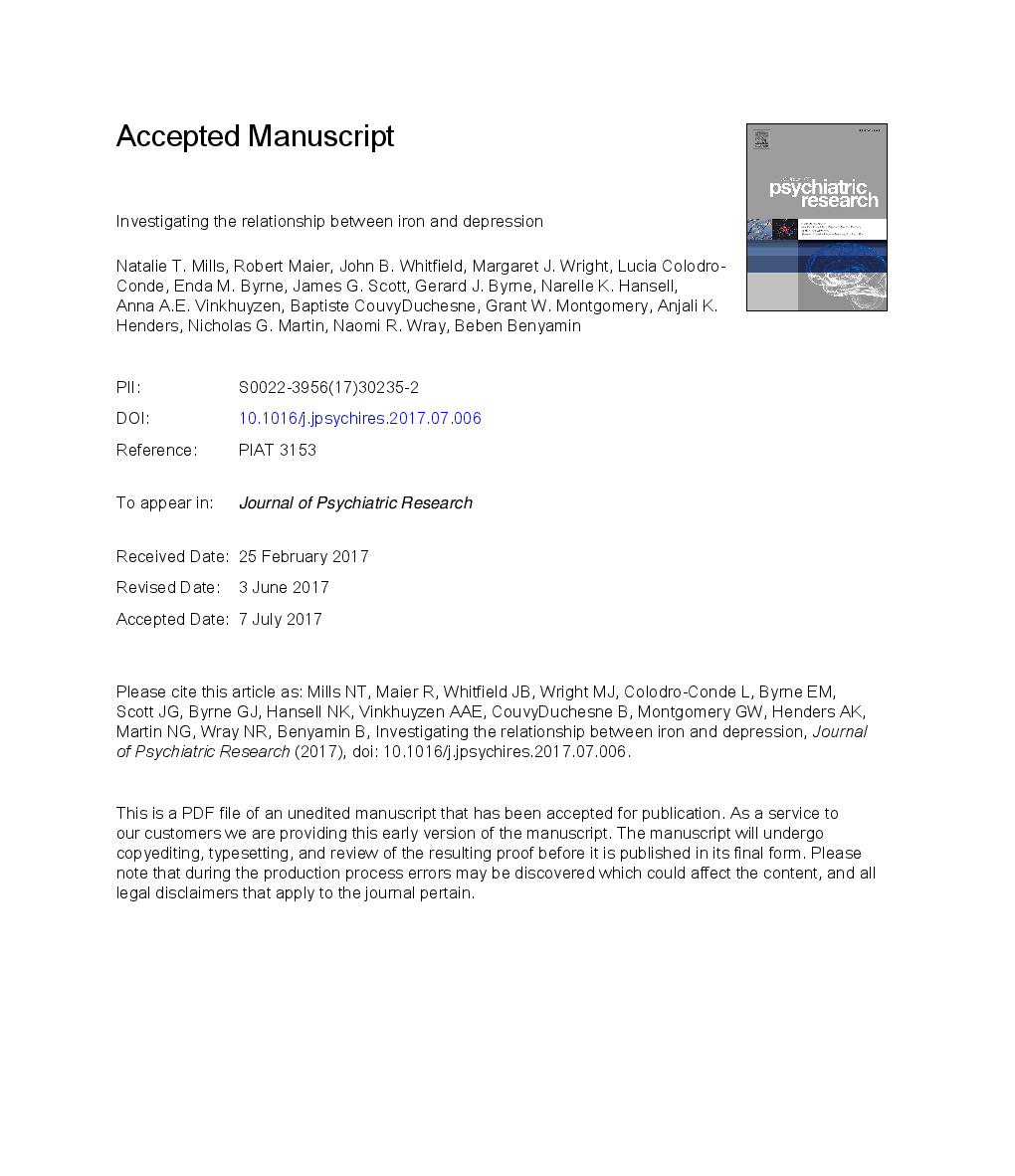ترجمه فارسی عنوان مقاله
بررسی رابطه بین آهن و افسردگی
عنوان انگلیسی
Investigating the relationship between iron and depression
| کد مقاله | سال انتشار | تعداد صفحات مقاله انگلیسی |
|---|---|---|
| 114729 | 2017 | 29 صفحه PDF |
منبع

Publisher : Elsevier - Science Direct (الزویر - ساینس دایرکت)
Journal : Journal of Psychiatric Research, Volume 94, November 2017, Pages 148-155

